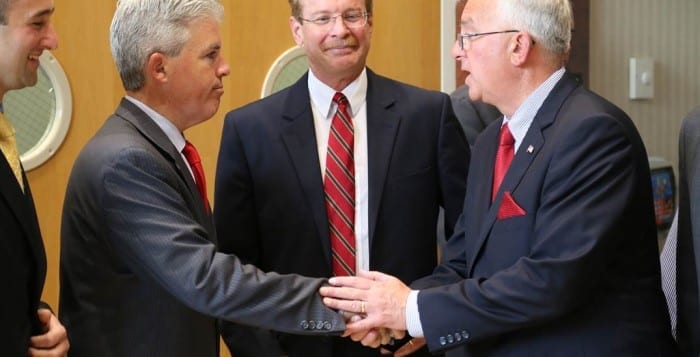Northport High School Academy of Finance students put their interview skills to the test this month at a mock interview event where they received feedback from local executives.
About 35 administrators from Long Island companies including Ameriprise Financial Services, Inc., KPMG accounting firm, Douglas Elliman, and MetLife Premier Client Group all gave students advice on what they should be communicating in an interview, how to act professional and how to dress, according to a press release.
“Our students took all the necessary preparations for this interviewing event,” Allison Schwabish, coordinator of the school’s Academy of Finance, said in statement. “We impressed on them that in order to get the internships that they will be applying for as a part of our program they will need to polish their interviewing skills.”
Schwabish said the 80 students who participated in the event on Jan. 14 went through a series of “speed interviews” where they worked on not only interview skills, but networking skills.
“This mock interview event was the perfect taste of precisely what we will face when conducting interviews in the business world, which is something that will definitely aid use in our future endeavors,” senior Emilie Reynolds said in an email.
Jake Sackstein, a fellow senior student, echoed Reynold’s sentiments.
“A year ago, I wouldn’t have dreamed about comfortably partaking in an interview, but now personal business interactions like this come as second nature,” he said. “It showed me how valuable the program is to me and I will continue to draw strength from it in the future.”
Northport High Schools’ Academy of Finance is a part of NAF, formerly known as the National Academy Foundation, a network of career-themed academies for high school students that includes multiple industries such as hospitality and tourism, engineering and the health science industry.
Student John Charles Unser said he appreciated the opportunity to work with so many prominent businesses.
“I was able to interview with Fortune 500 companies such as KPMG and Ameriprise Financial Services,” he said in an email. Unser said he was asked many difficult questions but was “able to provide appropriate examples and answer with professionalism.”








